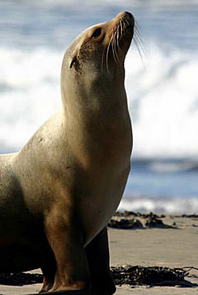 NOAA’s National Marine Fisheries Service issued new rules on April 10, 2019, governing the U.S. Air Force’s incidental harassment of marine mammals via launch noise and sonic boom. The Marine Mammal Protection Act:
NOAA’s National Marine Fisheries Service issued new rules on April 10, 2019, governing the U.S. Air Force’s incidental harassment of marine mammals via launch noise and sonic boom. The Marine Mammal Protection Act:
directs the Secretary of Commerce to allow, upon request, the incidental, but not intentional taking of small numbers of marine mammals by U.S. citizens who engage in a specified activity (other than commercial fishing) within a specified geographical region for up to five years if, after notice and public comment, the agency makes certain findings and issues regulations that set forth permissible methods of taking pursuant to that activity and other means of effecting the ‘‘least practicable adverse impact’’ on the affected species or stocks and their habitat (see the discussion below in the Mitigation section), as well as monitoring and reporting requirements.
The U.S. Air Force operates Vandenberg Air Force Base, with seven active missile facilities and six active space launch facilities. It support governmental and commercial launches. Vandenberg serves as the primary west coast facility for launching commercial, government and military satellites into polar orbit on unmanned launch vehicles, and for the testing and evaluation of intercontinental ballistic, sub-orbital target, and interceptor missiles. Certain rocket components, such as SpaceX’s first stages, are returned to VAFB for reuse, using in-air ‘‘boost-back’’ maneuvers and landings at the base. Aviation activities, including the flight of unmanned aerial vehicles, also take place at the base. The Air Force predicts that no more than 100 rocket and 15 missile launches would take place in any year over the next five years.
The new regulations contain the following requirements:
•Required acoustic monitoring to measure the sound levels associated with the planned activities.
•Required biological monitoring to record the presence of marine mammals during the planned activities and to document responses to the planned activities.
•Mitigation measures to minimize harassment of the most sensitive marine mammal species.